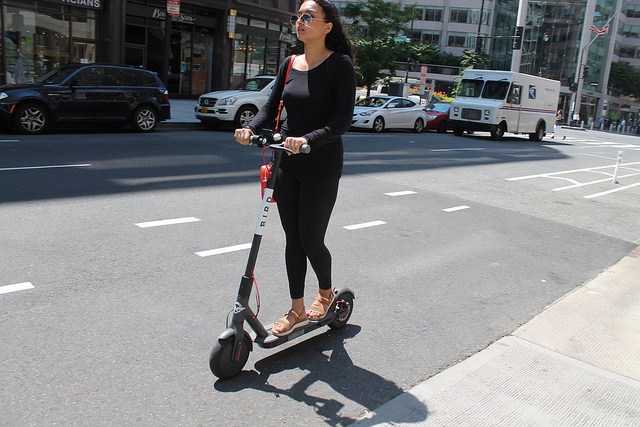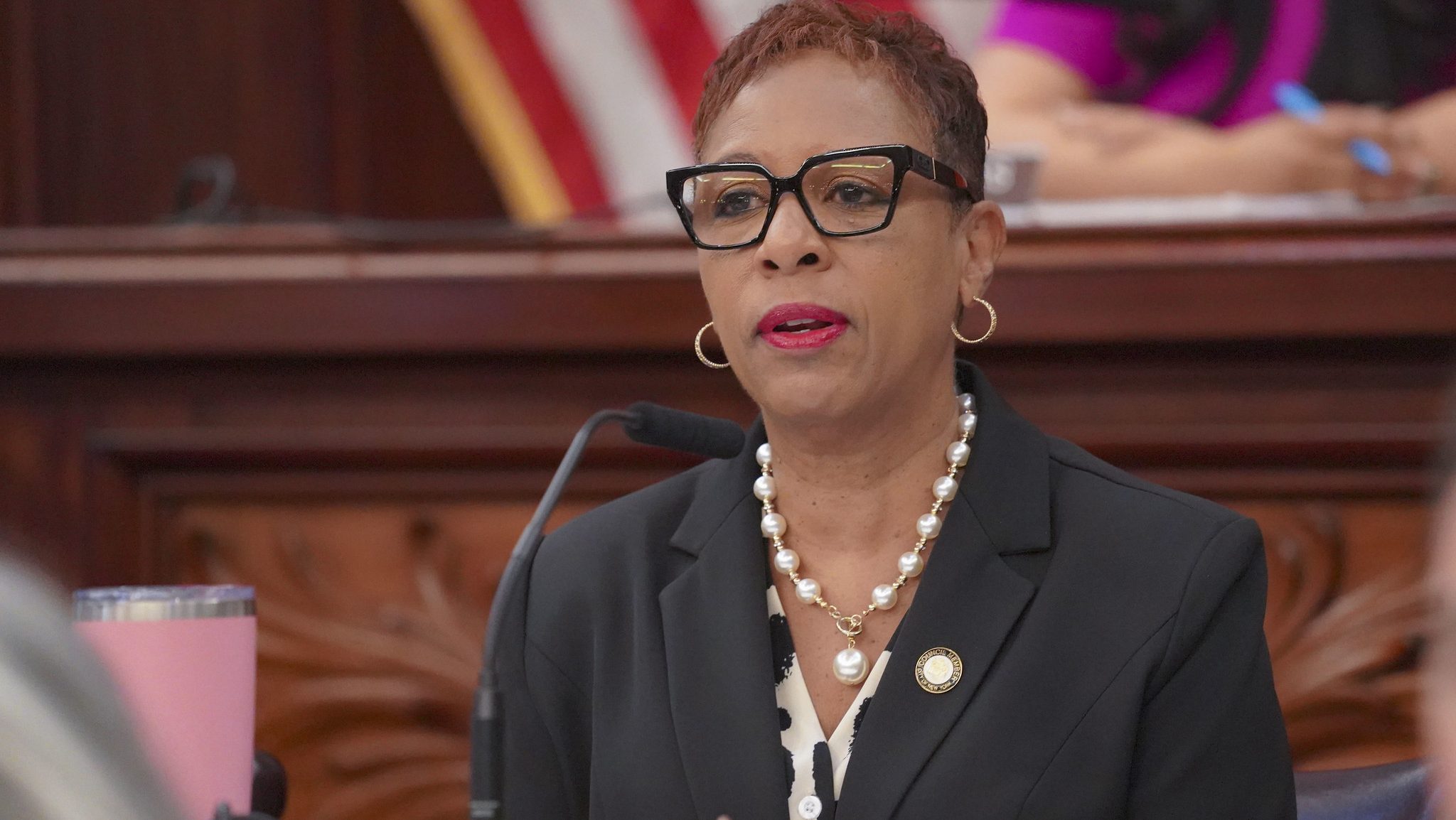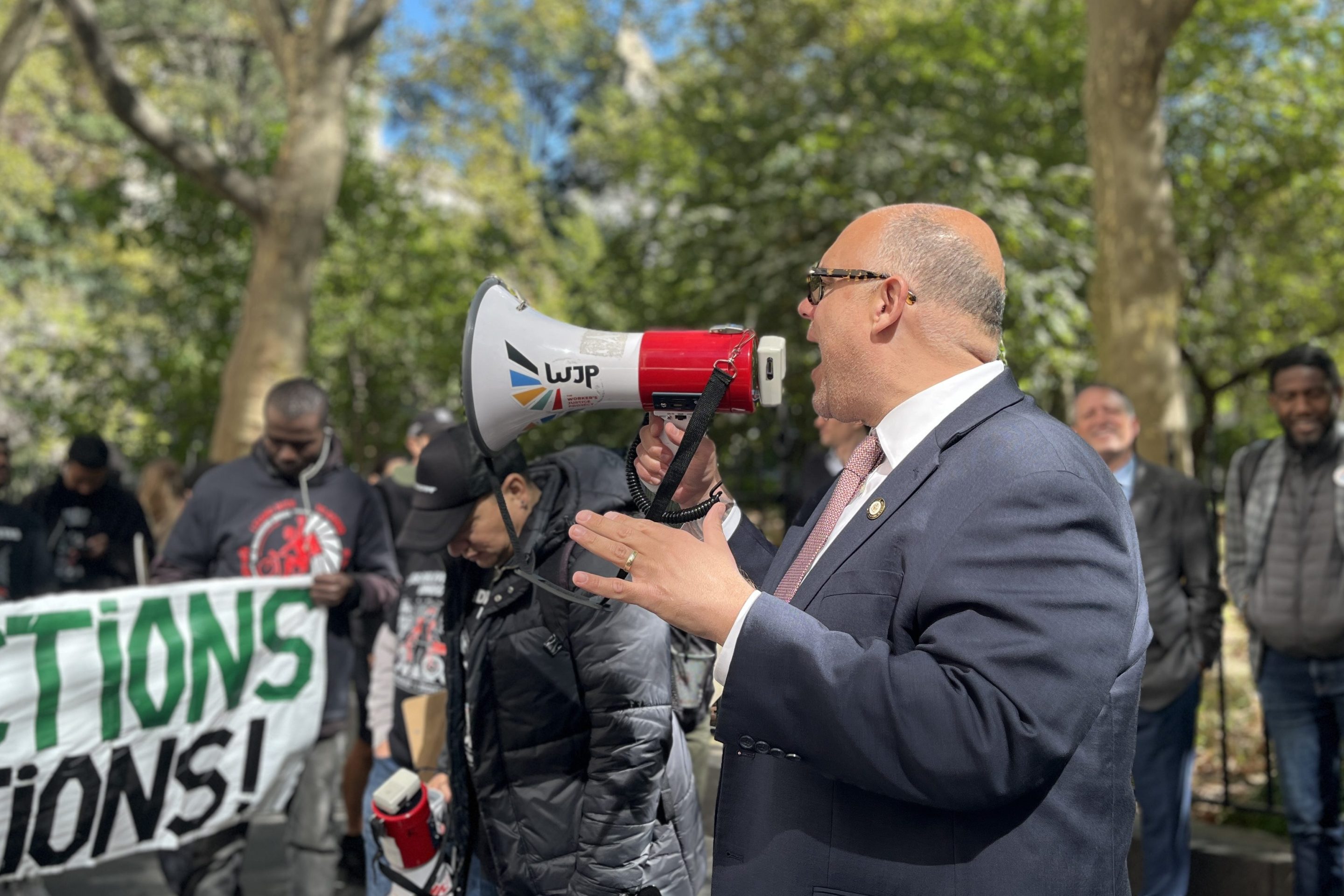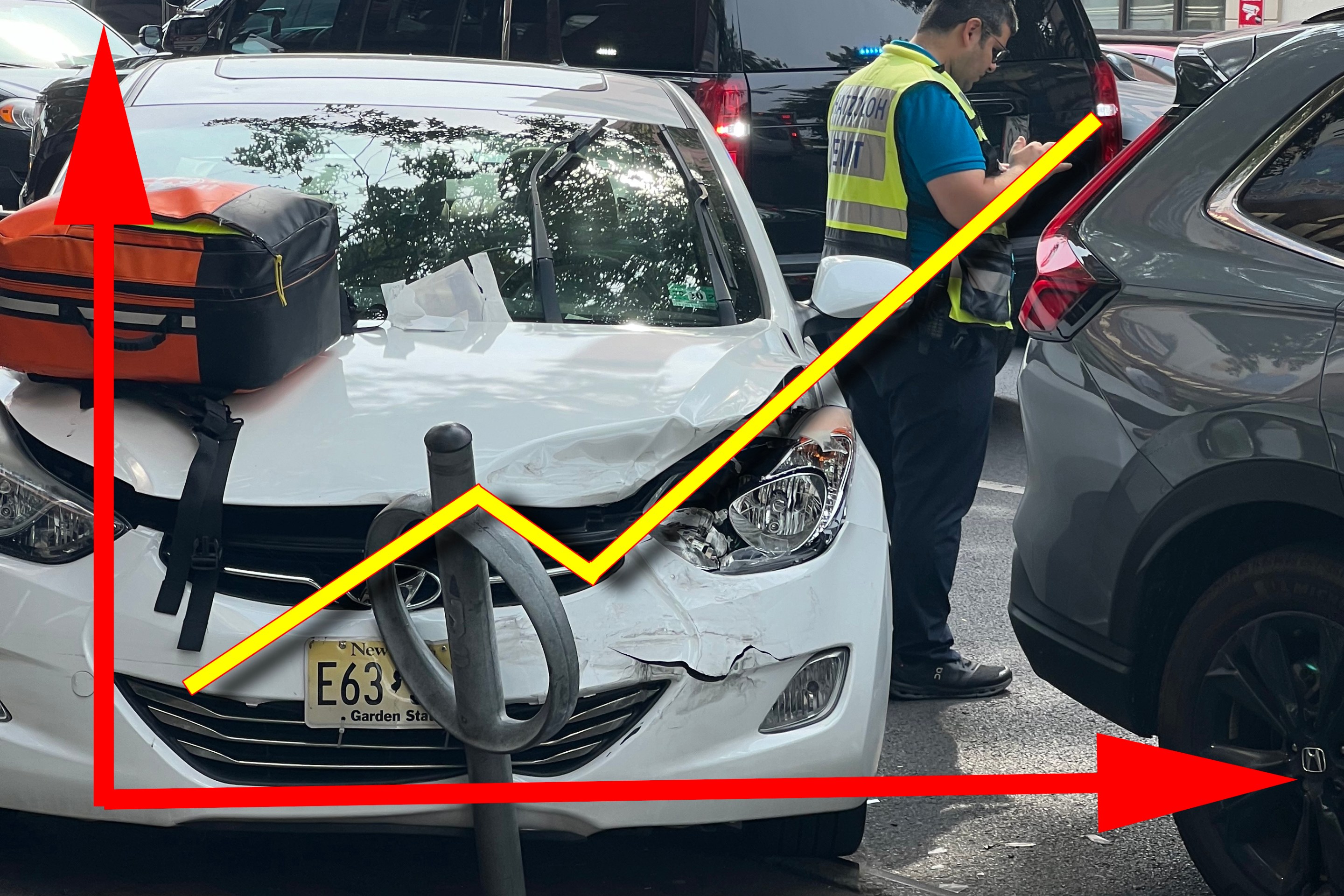It’s been a momentous few months for climate in New York. Over the summer, the State Senate passed an ambitious climate plan that aims to make New York carbon neutral by 2050. In July, New York City became the largest city to declare a climate state of emergency. And in September, the city hosted the United Nations's Climate Action Summit alongside an estimated 250,000 climate strikers.
These policy shifts are inspiring, but actual progress on reducing emissions, especially in the transportation sector, remains scant. Why? Because, in spite of the growing concerns over carbon emissions irreparably harming our planet, New Yorkers are driving and being driven more. We’re driving longer distances, and we’re driving larger, less efficient vehicles. Meanwhile, our city is congested: In Midtown Manhattan, drivers are moving at a pedestrian pace. Our air is polluted and our streets are dangerous. Streets built for cars, it turns out, are not working well for anyone.
To move toward a cleaner and more equitable future, we must also adopt policies that invite small electric vehicles — like the New York legislature wants to do in legalizing e-bikes and e-scooters. These modes are convenient and affordable. They’re energy efficient, traveling more than 30 miles on less than $0.10 of electricity. They are also good at connecting to transit and replacing car trips. After more than a dozen city and operator surveys, researchers have found that a third to a half of all e-scooter trips in the United States otherwise would have been taken by car. And while there may have been some issues with lifespan in the early days, recent reports show that scooters built by my company, Bird, can last 18 months on the road.
But legalizing electric micro-mobility is just the first step. If we are to make real climate progress, New York City must also adopt policies that rapidly reallocate street space to prioritize the most-efficient modes. We must retrofit our streets with protected transit and micro-mobility lanes, so that our citizens who choose transit and micro-modes have a safe and convenient place to ride. I am not talking just paint; we need physical barriers such as bollards, armadillos, or curbs, and we need them today.
Electric cars are featured prominently in most climate plans, and they are essential to meeting New York’s greenhouse-gas reduction targets — but they shouldn’t be our first priority. They are expensive and still out of reach for most households. Electric cars are still cars — and will still contribute to traffic congestion and road crashes. Also, until the grid is fully powered by renewable-energy sources, electric cars, which require a lot of electricity, will contribute to greenhouse-gas emissions.
Transit and micro-mobility lanes, on the other hand, are an elegant, simple, and proven climate solution that should be prioritized first and foremost. It will take years to build the charging infrastructure necessary to support EVs, but transit and micro-mobility lanes can be built practically overnight.
As we have seen in examples around the world, much more can be done with the street space that we already have. Some car lanes, which move about 1,000 people per hour each, can be transformed to transit and micro-mobility lanes — a configuration that could improve lane capacity 10-fold. With this relatively inexpensive design change, citizens who choose low-carbon modes are “rewarded” with a faster commute, because they do not have to sit in the traffic congestion caused by private vehicles.
At best, it will take more than a decade in order to transition existing vehicles to being fully electric, and at least another two decades to transition the grid to be powered by renewable energy sources, but we can make transit and micro-mobility better today. Every citizen and politician who cares about sustainability must also push for this long-overdue climate action. Our city, and our planet, depend on it.
Melinda Hanson is the head of sustainability at Bird, the first-ever shared e-scooter company available in more than 100 cities around the world. She is based in Brooklyn.







